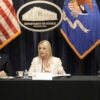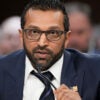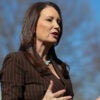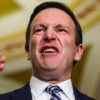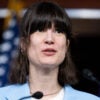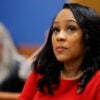The Iran Policy Committee (IPC) launched its fourth book in a series at the National Press Club today looking at the situation in Iraq, titled President Obama and Iraq: Toward a Responsible Troop Drawdown. The book was written by Prof. Raymond Tanter, Georgetown University and President of the Iran Policy Committee, and presents the findings from a fact-finding delegation that traveled to Iraq to interview Sunni Awakening members, Iraqi Shiites, Iraqi and American officials, and the Iranian opposition based in Iraq.
The book seeks to provide a dispassionate view of the situation in Iraq and the drawdown with an eye to Obama’s plans for Afghanistan and Pakistan. The panelists sought to highlight key findings and included Prof. Raymond Tanter; General Thomas McInerney, USAF (Ret.), former Joint Force Commander in the United States Air Force; and Bruce McColm, President, Institute for Democratic Strategies and former Executive Director, Freedom House.
A key finding was that the withdrawal of American forces in Iraq is likely to give a significant opening to Iran. The Iranian’s have a two-pronged strategy toward Iraq. They are reaching out very skillfully by providing economic and social assistance such as medical care. Secondly, they are projecting power with covert operations, influence operations and information campaigns designed to maximize Iranian influence over Iraq. The Iranian leadership has stated that Iran will seek to fill the vacuum inside Iraq after a U.S. withdrawal. This will be facilitated by the Quds Force of the Iranian Revolutionary Guard Corps (IRGC), which is present inside Iraq and ready to take advantage of the withdrawal.
The Daily Signal depends on the support of readers like you. Donate now
The panelists emphasized that the US exit strategy is extremely critical. The stakes are very high for the region, Iraq, and for the United States, which has sacrificed an enormous amount of blood and treasure. A major challenge that the book address in more detail is how to maintain the gains from the political-military surge during a withdrawal and how to prevent Sunni Awakening members from defecting back to al Qaeda.
The panelists argued that a key bellwether for progress in Iraq will be how the Iraqi government treats the Mujahedin-e Khalq (MEK), an Iranian opposition group based at Camp Ashraf inside Iraq. According to panelists, this group played a major role in the Sunni Awakening by successfully mediating between the American military forces and the Sunni Sheikhs. A key question today is whether the Iraqi government will continue to support this group and the Sunni Awakening. Moreover, the treatment of the MEK will be a benchmark for how the Iraqi government will tolerate different views.
The panel suggested that there are already some very disturbing signs on both of these fronts. The Iraqi government has recently begun clashing with Sunni Awakening members and some are not being paid any longer. Moreover, the Iraqi government has cordoned off Camp Ashraf for the past three weeks and is blocking all access to the MEK from women, lawyers and cell phones.
The Iranian government is campaigning for the MEK to be returned to Iran. They have stated that they will be treated humanely. This is farcical however, as it is illegal to be a member of the MEK inside Iran and punishable by death. Moreover, Camp Ashraf is protected under the Geneva Conventions and it would be illegal under international law to return members of the MEK back to Iran.
The panelists recommend taking the MEK off the US terrorism list and reaching out to the group to gain leverage over Tehran. They state that the MEK should not be used as a bargaining tool in some “grand bargain” as the government in Tehran cannot be trusted to uphold any promises.
If President Obama and Dennis Blair, Director of National Intelligence, hope to follow a similar path in Afghanistan by “peeling off moderates” then they will need a third party mediator/interlocutor group, according to the panelists. If the US abandons this group and sits by while it faces increasing pressure from the Iraqi government, then the panelists warned that the US will find no trusting interlocutors in Afghanistan.
